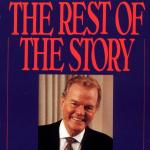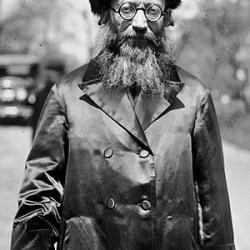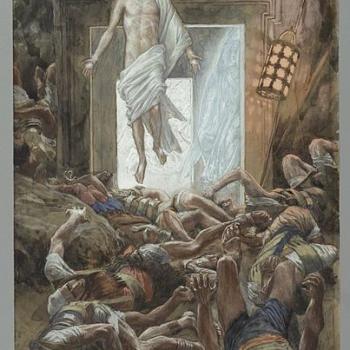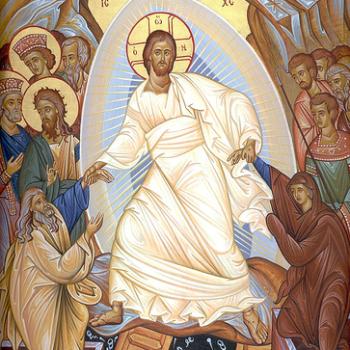The Catholic Bard presents a guest post featuring a homily given on the Twenty-sixth Sunday in Ordinary Time re-presented here as a meditation written by Deacon Joshua Klickman.

He is a Deacon at Saint Patrick Catholic Church Fayetteville, NC and Coordinator for Human Life and Dignity at Diocese of Raleigh.
Jesus said to the chief priests and elders of the people:
“What is your opinion?
A man had two sons.
He came to the first and said,
‘Son, go out and work in the vineyard today.’
He said in reply, ‘I will not, ‘
but afterwards changed his mind and went.
The man came to the other son and gave the same order.
He said in reply, ‘Yes, sir,‘ but did not go.
Which of the two did his father’s will?”
They answered, “The first.”
Jesus said to them, “Amen, I say to you,
tax collectors and prostitutes
are entering the kingdom of God before you.
When John came to you in the way of righteousness,
you did not believe him;
but tax collectors and prostitutes did.
Yet even when you saw that,
you did not later change your minds and believe him.”-MT 21:28-32
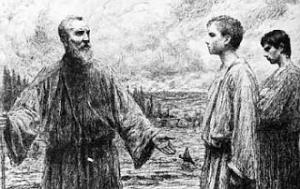
In this meditation I want to focus on our individual role in the Church and in the world.
In the Gospel reading from Matthew, a man tells one son to go out and work in the vineyard. That son says that he will not go, but he “changes his mind” and goes out to work in the vineyard, doing the will of his father. The other son said, “yes sir” but then he did nothing.
There are a lot of things that we can learn from this simple story, and certainly one of the most apparent is that what we do is more important than what we say, but there is another key theme here that makes this story more than a just a fable.

In my research on this passage I went to the Catechism of the Catholic Church[1] and to the writings of the Early Church Fathers[2] to see what this verse meant to them and to see when they cited this verse in their writings. In every instance, this verse is used when discussing repentance. I think we can miss that with the New American Bible translation that we read from at Mass which uses the phrase “changed his mind.” In other English translations the word “repent” is commonly used here, but in the Greek, this is the word Met-am-el-lom-ai [3] which means “to go back on your word,” which in this case is regret and then repentance. For Clement of Alexandria, the main point of this passage is that Jesus has come to offer salvation, so we must repent and become a living law.[4] We must examine our lives and find those areas where we have said no to what is right and just, and then repent and do the will of the father.
Often, we do not feel like doing what is right. That is part of our condition of “original sin.” We see this every year with New Year’s resolutions. I am not going to say that this is fine or good, but it is what it is. We all have the tendency to resist doing what is right, even when we know better, even when we intend to do the good. Our changing bodies get stuck in the idea that what we are doing is better than anything else, and we become resistant to change, even when we say, “yes sir,” we then go out and disobey. Scripture is full of examples, and even the Chaste Guardian of the Virgin Mary and Foster-Father of the Son of God, St Joseph, had to change his mind to do the will of the Father, thanks to an angel appearing to him in a dream.

So there is a lot of hope in this reading and some very practical lessons. On the one hand there is a son who says “yes” and does nothing, and on the other hand there is a son who says “no,” but repents. He changes his mind, and then the change is made complete in his doing and his obedience. Notice that he doesn’t say “dad, I’m sorry that I didn’t go out and work in the vineyard.” There is no verbal apology, but there is a full conversion with a firm purpose of amendment that actually DOES the will of the father out of love. We see that, in doing, we are converted. We cooperate with grace and this leads to the deeper conversion of becoming a living law. Our increased love leads us to habitually do what is right.
I think this passage is perfect as we approach the end of this election season. I have recently heard the statement that “we clergy are not supposed to be political.” Nonsense, I have never heard that from anyone in authority. Look at the announcements from the Bishops. They are VERY political. I work for the diocese and every January, in addition to the Marches for Life in Raleigh and in Washington DC, we attend an annual gathering to engage with our political representatives on policies that affect human life and dignity such as gun violence, the environment, immigration, and nuclear weapons.
So we are certainly called to be political, but what we cannot be is partisan. We cannot be blind to the unjust aspects of our own political parties, nor can we deny the goodness that is present in other organizations. When we do the will of the Father, we work to advance truth, goodness, and beauty. If we don’t recognize these where they exist, we participate with evil. In fact, the starting point for evangelization is to find what is recognized as true, good, and beautiful and show how the Trinity is at work in those places so we can convert the world to a deeper sense of joy, freedom, and peace.
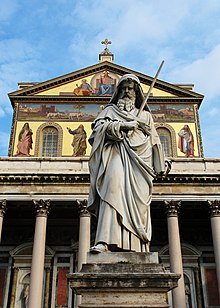
We must be Christians first, just like St Paul was a Roman citizen who was a Christian, first. And look what he did to that title “Roman.” In his day it was the Romans killing Christians. Roman authorities used the death penalty to kill Christians, now, you cannot imagine Christianity without the culture, language, and even the city of Rome. St Paul was certainly that son who said “no” to the father but then repented.
The key for St Paul was conversion and DOING the will of the father. And so it for us and our political engagement, DOING is the key. At some level, voting is simply expressing an opinion.[5] If someone cheated you out of a thousand dollars, you would not be content in expressing the opinion that this should not have happened, you would go out and DO something to get your money back and see to it that it would never happen again.

Voting is a very important, but I think it can take away from the fact that there is a lot of work. Many people sit in anxiety, waiting for that day to cast a vote and then worry about how that vote will make a difference and even judge others based on their vote. This year I have a lot of friends who don’t even want to vote. To relieve this anxiety, I think the solution is to go out into the world and DO the will of the father.
All of those policies that we care about, some of the things I mentioned, go out and get involved with them. This will not only better inform you about how you should vote, it will relieve that anxiety about the uncertain effects of your vote, as you will be DOING the will of the father. Selfless service leads to a sense of peace.

This is how we will be judged at the end. Did we receive love from God and give this love to others? Did we feed the hungry, give drink to the thirsty, welcome the stranger, visit the imprisoned, and support life from conception until natural death? This gospel today is also perfect to reflect on as we consider our own stewardship. One of the best ways to be involved is to get involved with parish ministries. As Father Greg remined us these past few weeks, work and prayer are the key to renew our interior lives and to restore our parish life. There are a plethora of opportunities to do the will of the father right here in our parish.
Finally, I want to point out the scriptural meaning from PHIL 2:1-5 that gives us the real key here, as love is the essential ingredient to Christian obedience and freedom.
Brothers and sisters:
If there is any encouragement in Christ,
any solace in love,
any participation in the Spirit,
any compassion and mercy,
complete my joy by being of the same mind, with the same love,
united in heart, thinking one thing.
Do nothing out of selfishness or out of vainglory;
rather, humbly regard others as more important than yourselves,
each looking out not for his own interests,
but also for those of others.Have in you the same attitude
that is also in Christ Jesus.
We do the will of the father when we become obedient like Christ and see others as more important than ourselves, not looking out for our own interest, but for the interest of others. This is how we will be judged at the end. Did we receive love from God and give this love to others? Did we feed the hungry, give drink to the thirsty, welcome the stranger, visit the imprisoned, and support life from conception until natural death? This gospel passage is also perfect to reflect on as we consider our own stewardship. One of the best ways to is to get involved with parish ministries. As my priest Father Greg has reminded us in our parish, work and prayer are the key to renew our interior lives and to restore our parish life. There are a plethora of opportunities to do the will of the father right in our own parishes.

It is in this work of doing the will of the father out of love for the other that we are transformed and converted to him. When we love others, we do the will of the father. In Saint Paul’s letter to the Romans, he tells us that loving our neighbor as ourselves is the summation and fulfillment of the law. [6] So as reflect on our own stewardship and consider how we use our time, talent, and treasure, let us keep in mind these readings to see how we use our own resources to love others.
Seek the Saintly Intercession of St Paul and St Joseph and meditate on their lives, and then ask yourself these simple questions, have I loved others as I would want to be loved if I were in their situation, and have I become a living law by doing the will of the Father?
References
All Scriptural References from The Didache Bible: With Commentaries Based on the Catechism of the Catholic Church. Downers Grove, IL: Midwest Theological Forum, 2014
Catechism of the Catholic Church: Revised in Accordance with the Official Latin Text Promulgated by Pope John Paul II. Vatican City: Libreria Editrice Vaticana, 1997.
Fernández-Carvajal Francisco. In Conversation with God: Meditations for Each Day of the Year. London: Scepter, 2000.
Roberts, A., & Coxe, A. C. (2012). Ante-Nicene Fathers the writings of the Fathers down to A.D. 325. Peabody, MA: Hendrickson.
Socías, James. Daily Roman missal: complete with readings in one volume with Sunday and weekday Masses … and the order of Mass in Latin and English on facing pages and devotions and prayers for use throughout the year. Woodridge, IL: James Socias for Midwest Theological Forum, 2012.
Strong, James, and James Strong. The New Strong’s Expanded Exhaustive Concordance of the Bible. Nashville: Thomas Nelson, 2010.
Thoreau, Henry David. Walden or, Life in the Woods and on the Duty of Civil Disobedience. New York: Perennial Library, 1965.
- I found one more error as I was rehearsing this morning…section 14…I said “get involved” twice. Here is the correction
[1] Catechism of the Catholic Church: Revised in Accordance with the Official Latin Text Promulgated by Pope John Paul II. Vatican City: Libreria Editrice Vaticana, 1997. (CCC 1425)
[2] Roberts, A., & Coxe, A. C. (2012). Ante-Nicene Fathers the writings of the Fathers down to A.D. 325. Peabody, MA: Hendrickson, 1:492; 2:351, 3:446
[3] Strong, James, and James Strong. The New Strong’s Expanded Exhaustive Concordance of the Bible. Nashville: Thomas Nelson, 2010. p. 162. (H3338)
[4] Roberts, A., & Coxe, A. C. (2012). Ante-Nicene Fathers the writings of the Fathers down to A.D. 325. Peabody, MA: Hendrickson. 2:351. Clement of Alexandria says of this verse, “We become a living law.”
[5] Cf. Thoreau, Henry David. Walden or, Life in the Woods and on the Duty of Civil Disobedience. New York: Perennial Library, 1965. P 258 “How can a man be satisfied to entertain an opinion…If you are cheated out of a single dollar by your neighbor, you do not rest satisfied with knowing you are cheated, or with saying that you are cheated…but you take effectual steps at once to obtain the full amount, and see to it that you are never cheated again. Action from principle, the perception and the performance of right, changes things and relations; it is essentially revolutionary, and does not consist wholly with anything which was. It not only divided States and churches, it divides families; ay, it divides the individual, separating the diabolical in him from the divine.
[6] Romans 13:8-10


